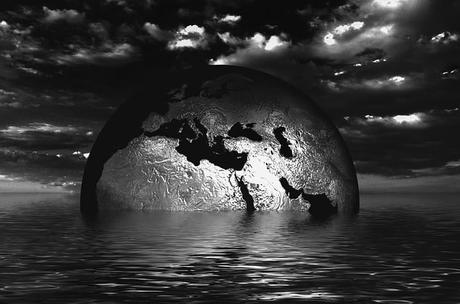Ten families from Fiji, Kenya and countries across Europe who are already suffering the effects of climate change filed a case against the EU Wednesday in a bid to force the body to increase its commitments under the Paris agreement, AFP reported.
The “People’s Climate Case,” as it is being called, challenges the climate policies of the European Parliament and the Council of the European Union, saying they will not reduce emissions quickly enough to stop rising temperatures from disrupting the plaintiffs’ lives. While an increasing number of communities and individuals have taken fossil fuel companies and governments to court over climate change in recent years, this is the first such case to be brought against the EU as a whole.

The case was brought before the Luxembourg-based European Court of Justice by people who “are already being impacted by climate change, already incurring damage … and they are saying: ‘EU, you have to do what you can to protect us because otherwise our damage will be catastrophical,'” Roda Verheyen, the lawyer arguing the case, told AFP.
The EU currently plans to reduce greenhouse gas emissions by 40 percent below 1990 levels by 2030, but the plaintiffs say that is not enough. They are asking the EU to strengthen its plan’s emissions trading scheme directive, its land use, land use change and forestry regulation and its effort sharing regulation.
The UN calculated that current international commitments under the Paris agreement would still allow for three degrees Celsius of warming above pre-industrial levels, despite the agreement’s goal of limiting warming to “well below” two degrees. Scientists say a three degree warmer world would lead to even more extreme weather and sea level rise, according to AFP.
“This case is important because it asks the EU to increase its climate ambition to 2030, in order to take a fair share of the burden required to meet the temperature goal of the Paris agreement and to protect the human rights of European citizens,” ClientEarth lawyer Sophie Marjanac told The Independent.
According to The Guardian, there is precedent for the success of such an argument. In 2015, a judge at The Hague ruled in favor of the plaintiffs in a case brought against the Dutch government asking it to reduce emissions by 25 percent within five years. The Netherlands appealed the case, and the appeal will be heard next week.
The plaintiffs in this case are not seeking any financial compensation, only policy change, and their stories put a human face to the sometimes abstract concept of climate change.
They include members of the indigenous Swedish Sami Youth Association Sáminuorra who say that warmer Northern winters are threatening the reindeer that their way of life depends upon.
“If we lose the reindeers, the Sami culture will be lost. Many of the Sami youth want to stay with their families and be reindeer herders, but they cannot see a future. This is mostly due to the threat of climate change. This must be urgently addressed for the safety of our generation and the next generations.” Sáminuorra Chair Sanna Vannar said, as quoted by The Guardian.
Further south, 72-year-old Provencal lavender farmer Maurice Feschet is also concerned with passing on his livelihood. He said that climate change cost him 44 percent of his harvest within six years.
“My family has been farming here since the 1800s. I am taking this action for my 38-year-old son who lives on the farm. We want him to continue to be able to farm, but it is not going to be easy. There must be more done,” he told The Guardian.
According to AFP, Vannar and Feschet are joined by about 30 other plaintiffs, including a Romanian sheep farmer whose herd is threatened by drought, a Portuguese forester who lost all of his trees to wildfires in 2017, residents of a German island threatened by rising sea levels, owners of a diminishing ice-climbing business in the Italian Alps, Fijians concerned with more intense cyclones and coral bleaching and a Kenyan family coping with desertification.
The action is supported by Climate Action Network (CAN), an umbrella group of environmental NGOs working to tackle climate change.
“In 2015, as part of the Paris agreement, countries agreed to pursue efforts to limit temperature rise to 1.5C. Yet, it is clear that the existing EU 2030 climate target is not enough to respect the commitments taken in the Paris agreement and should be increased,” said CAN director Wendel Trio. This legal action initiated by families is underlining the urgency and the necessity to increase the EU’s 2030 climate target.”
The German NGO Protect the Planet is bearing the costs of the legal case, and scientists from think tank Climate Analytics are providing expertise to clarify how the plaintiffs are affected by climate change and what the EU can do to improve its targets.

